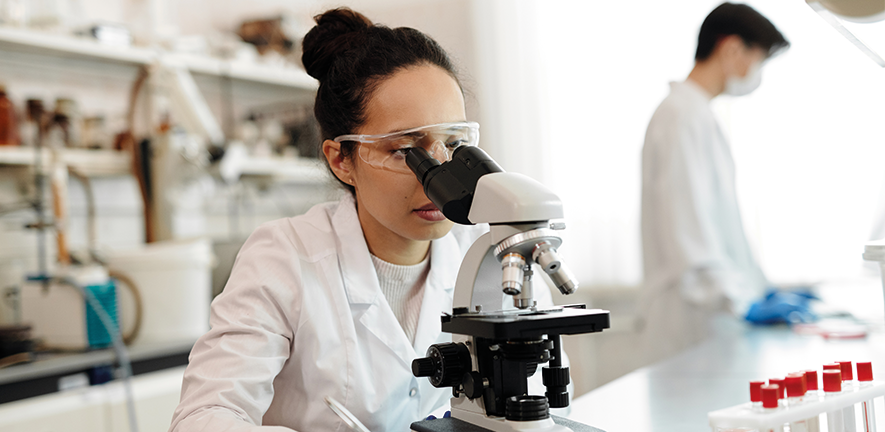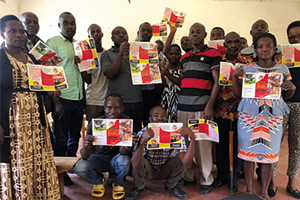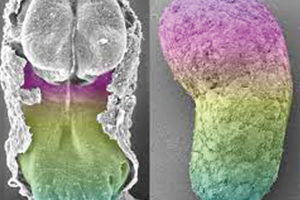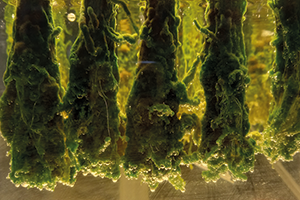
Submitted by Susana Camacho on Mon, 05/06/2023 - 14:45
Funding from the BBSRC Impact Acceleration Account (IAA) has been awarded to 3 projects in the School of Biological Sciences, enabling researchers to develop wider societal benefits and impact as a result of their research.
The projects, which commenced in February 2023, will run for 6 months and cover the following areas:
- Equitable partnerships and stakeholder engagement, Andrew Conlan (Associate Professor in Epidemiology) and Abel Wilson Walekhwa (PhD Student), Department of Veterinary Medicine: Piloting the feasibility of community-based livestock abortions reporting for improved surveillance of Rift valley fever disease in Isingiro District, Uganda.
- Policy engagement and impact, Kathy Niakan (Professor of Reproductive Physiology), Department of Physiology, Development and Neuroscience and Reproduction SRI: G-SCBEM (Governance of Stem Cell-Based Embryo Models
- Product development for commercialisation, Chris Howe (Professor of Plant and Microbial Biochemistry) and Paolo Bombelli (Postdoc Researcher), Department of Biochemistry: Accelerating the Impact of Biophotovoltaics.
Impact funding from UKRI is vital to support researchers in developing and implementing their ideas and enable a pipeline for positive impacts in society. The University holds multiple UKRI Impact Acceleration Accounts which researchers in the School of Biological Sciences can apply to, and these cover entrepreneurship, technology transfer and commercialisation, long-term business engagement and partnerships, policy impact, social and cultural impact.
Piloting the feasibility of community-based livestock abortions reporting for improved surveillance of Rift Valley fever disease in Isingiro District, Uganda.
Andrew Conlan and Abel Wilson Walekhwa, Department of Veterinary Medicine
In the Isingiro district, on the Uganda-Tanzania border, livestock rearing is the main source of livelihood. The district has previously suffered outbreaks of Rift Valley fever disease (RVF), which is a growing public and animal health threat. This impact project aims to design and pilot a community-based early warning surveillance system for potential RVF in Isingiro district using self-reported cases of livestock abortions from farmers. The study aims to demonstrate the feasibility of the surveillance system, and to measure stakeholders' awareness of RVF and willingness to participate in a surveillance system and potential RVF vaccination programme.
Uganda has experienced RVF outbreaks in both humans and livestock since 2016 but has not implemented the vaccination of livestock against RVF, unlike neighbouring countries. The project aims to develop a business case for using rapid diagnostic tests (RDTs) for screening RVF at a community level and inform a policy-paper on rolling out an RVF vaccination programme in Uganda. The project will focus on the Isingiro district and examine the facilitators and barriers for implementing the rapid diagnostic tests and vaccination programme. The project's long-term impact goal is to contribute to early detection of Rift Valley fever disease in Isingiro district.
“The award of IAA grant has provided the opportunity to support the delivery of a pilot study that could establish a business case for community-led surveillance for Rift Valley Fever (RVF). This has the potential to have a transformative effect on both the impact of this research and the prospects for more timely interventions for RVF in Uganda.” Andrew Conlan, Associate Professor in Epidemiology, Department of Veterinary Medicine.
Governance of Stem Cell-Based Embryo Models (G-SCBEM )
Kathy Niakan, Department of Physiology, Development and Neuroscience and Cambridge Reproduction
Stem cell-based embryo models (SCBEMs) can recapitulate aspects of early human development, providing insight into inaccessible developmental stages and offering exciting possibilities for our understanding of disease mechanisms and treatments. However, the UK’s existing regulatory frameworks lag behind the rapidly developing science, hindering basic research, industry uptake, and clinical translation of embryonic organoid technology. This project brings together key stakeholders – including regulators, funders, scientists, bioethicists, legal scholars and patient groups – to draft a self-governance framework for research using SCBEMs in the UK. As this is an emerging area of research, the team is consulting widely to determine the opportunities, areas of consensus and concerns posed by SCBEMs. The consultation will also lay the groundwork for engaging the public and other stakeholders in a parallel two-way dialogue around the use of SCBEMs for research and in translation.
By producing a clear and comprehensive framework for self-governance of research using SCBEMs, the project aims to enable scientists to proceed with their research with confidence, while maintaining public trust in this area. The framework will promote responsible, transparent and accountable research using SCBEMs which can be widely adopted by scientists, funders and regulators. Having a common framework will also facilitate collaboration, especially between academia and industry. Ultimately, by supporting the development of new policy and governance, this project will remove current barriers to research involving SCBEMs, unlocking the potential for their use in both basic research and in translation. This will benefit researchers in academia, biotech companies, pharmaceutical companies involved in drug discovery and development, and patients, especially pregnant women.
“The BBSRC IAA funding has enabled Cambridge Reproduction to coordinate diverse expertise across bioethics, law, sociology and basic science to discuss issues on the governance of sophisticated stem cell-based embryo models. This is a fast-developing area and the project will open important dialogues with researchers, funders, regulators and the general public”. Kathy Niakan, Professor of Reproductive Physiology, Department of Physiology, Development and Neuroscience and Cambridge Reproduction Strategic Research Initiative.
Accelerating the Impact of Biophotovoltaics
Chris Howe and Paolo Bombelli, Department of Biochemistry
This impact project comprises a pioneering novel technology developed in the lab, named Bio Photo Voltaic (BPV), capable of generating electricity from the photosynthesis of algae, which will now be developed into prototypes customised on specific commercial applications and tested in the lab. Additionally, the funding will support the analysis of potential market analysis for the proposed Biophotovoltaics commercial products.
Advancing towards the commercial implementation of the Bio Photo Voltaic technology, will potentially substitute portable batteries for powering billions of small electronic devices (such as digital thermostats controlling heating systems, LCD clocks, calculators and thermometers, remote controls for domestic appliances, dynamic displays for stores). Considering the environmental impact of the use of traditional disposable batteries, this new technology offers a greener alterative and could have significant impact in protecting our environment.
“The funding from the Impact Acceleration award is an essential stepping stone towards the commercial development of the Biophotovoltaic technology, providing crucial financial support to drive its advancement and market implementation”. Paolo Bombelli, Postdoc Researcher, Department of Biochemistry.
Researchers in the School of Biological Sciences can find out more about funding opportunities to support impact and engagement activities on the School Information Hub or contact the Bioscience Impact Team.




